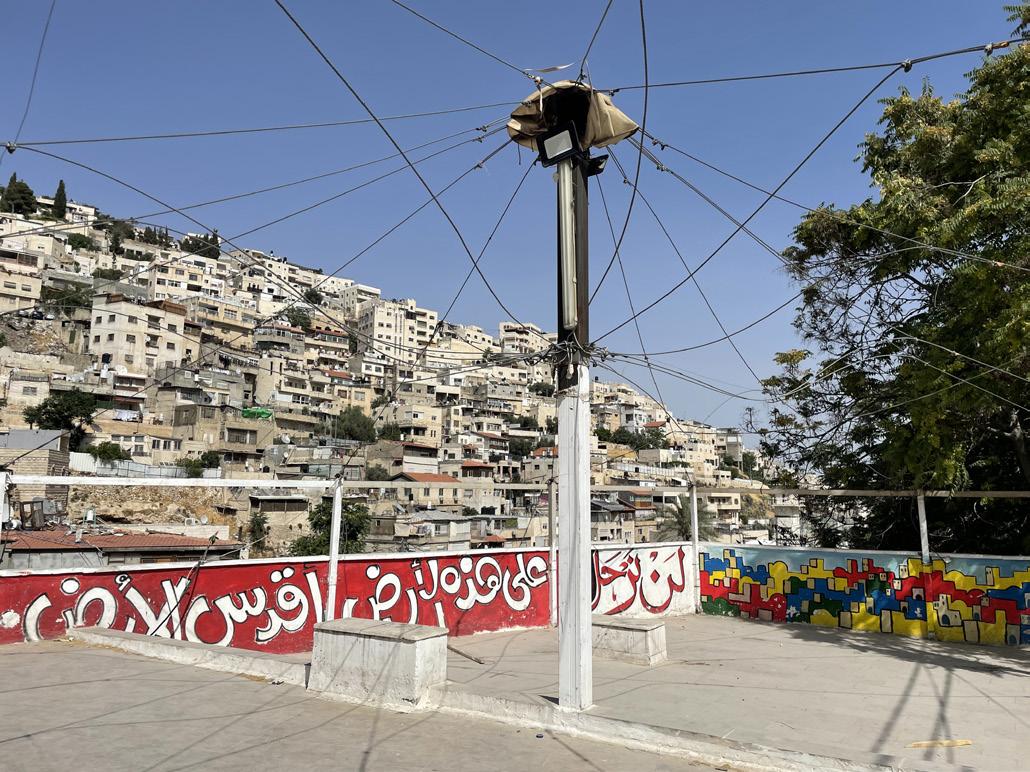
7 minute read
An Anchor and a Path: Student Reflections on the Certificate in Religion and Public Life
BY NATALIE CHERIE CAMPBELL, MTS ’18
When Susie Hayward, associate director of the Religious Literacy and the Professions Initiative, came to Harvard Divinity School as a student, she knew that she wanted to pursue a career in foreign policy, peacebuilding, and diplomacy.
Advertisement
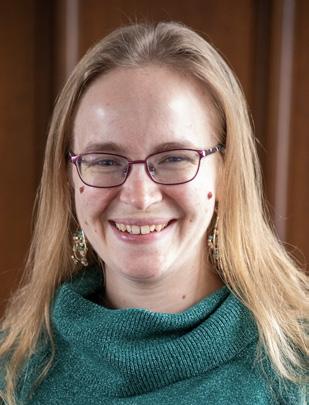
“I wanted to bring an understanding of religion into those spaces where a lack of it was preventing progress,” she says. “But I quickly learned that I would have to forge my own way at HDS to develop the relationships and pragmatic skills needed to work in policymaking and diplomacy post-graduation.”
Hayward is one of decades of HDS students who have wanted to pursue vocations outside the two defined dimensions of HDS programs—academia and traditional forms of ministry. When Religion and Public Life (RPL) was created, it responded to this student need with one of its two curricular components, the Certificate in Religion and Public Life (CRPL).
The CRPL provides a structured opportunity for current Master of Divinity (MDiv) and Master of Theological Studies (MTS) students to think about their degrees in context.
“The very possibility that I could help create the program that I wish had existed when I was a student, that offers that critical work of translating and leveraging the study of religion in different professional fields through internships, skills building, and relationships with professionals, was exciting to me and everyone I talked to,” Hayward says.
The program is built on “the assumption of collaboration,” Diane L. Moore, associate dean of Religion and Public Life, explains. “We have a lot to learn from experts in arenas outside our own, and we believe we have something to offer relevant to a complex understanding of religion.”
“With professionals in other fields, we create pathways for those pursuing ‘secular professions’ to deeply consider how religious literacy fits into larger questions of inclusion and building opportunities for just peace,” Moore says. “Our students can become real leaders in a world that desperately needs an understanding of the powerful force of religion.”
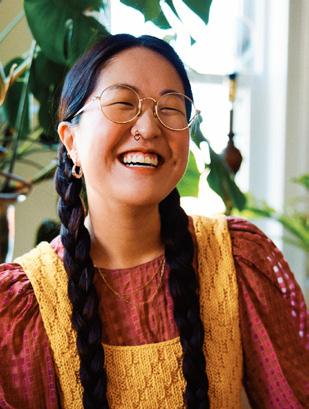
Now, three years after the debut of Religion and Public Life, the first CRPL cohort of MDiv and MTS students are graduating. CRPL students Prabhroop Kaur Chawla, MTS ’23, Kevin Keystone, MTS ’23, Auds Hope Jenkins, MTS ’24, Ariella Gayotto Hohl, MDiv ’24, and Camilla Gray, MTS ’23, reflect on their experiences in the program.
The Possibilities When Religion Is Part of The Conversation
AUDS HOPE JENKINS
(JOURNALISM) : Reading Professor
Moore’s white paper about the RPL method was the first thing that got me excited about the program. The paper is simultaneously a rigorous piece of scholarly work and a humble invitation to professionals across many different fields to contribute their expertise to advancing religious literacy at a time when we desperately need it. I love that the paper says “DRAFT” all over it. It illustrates the deeply collaborative, iterative nature of this coalition-building project. The CRPL program has expanded my sense of possibility for how the study of religion can support our collective pursuit of justice.
ARIELLA GAYOTTO HOHL
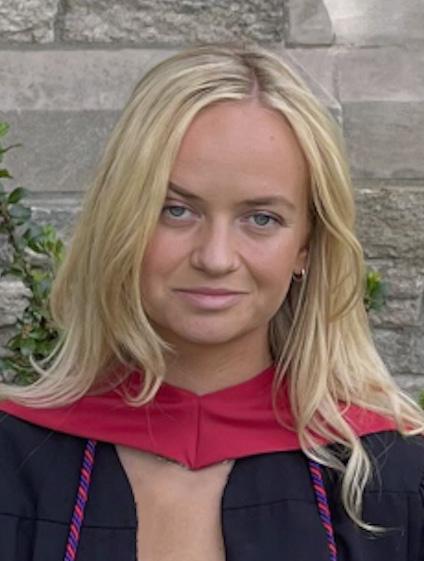
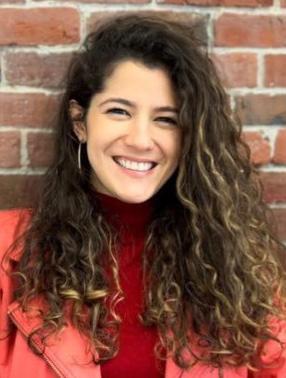
(ENTERTAINMENT AND MEDIA) :
I was lucky to be at HDS right when the first cohort for CRPL formed. My calling is storytelling, and I want to dedicate myself to creating a space for my community, the Muslim community, and bring my abilities to bear for the communities I’m trying to build.
Pursuing filmmaking as an MDiv student was hard, though. I didn’t have a lot of resources to figure out the technical aspects of my education. But then Maytha Alhassan was named an RPL Media and Entertainment Fellow. She worked on the TV series Ramy, and I was like, “This is the kind of story I want to tell.” It gave me a path.
I thought I had to choose before: either I’m going to go into chaplaincy or I’m going to be a filmmaker. CRPL was the first time I didn’t have to choose, where I could think of ministry and filmmaking in the same way. It gave me a framework and support system to bring together my two vocations.
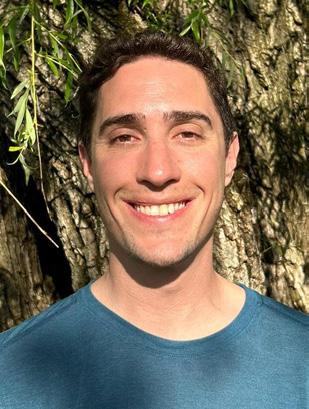
CAMILLA GRAY (HUMANITARIAN ACTION): Like Ariella, I was in a position before coming here where I felt like I needed to pick between a PhD in religion or work in humanitarian spaces. I did my bachelor’s in Islamic studies and Sufism. Then I stepped into the humanitarian space, working with the United Nations Development Program, among other organizations. My work didn’t relate to religion at all, and I wanted to bridge those two interests. CRPL was an incredible opportunity to do that.
PRABHROOP KAUR CHAWLA (GOVERNMENT) : I also wanted to bridge my bachelor’s degree in international development and globalization and my master’s degree in international affairs, diplomacy, and foreign policy with this focus on religion. In those arenas, we often talk about intersectionality or “bottom-up” approaches to diplomacy and development, all those areas where one considers the range of factors that are at play. Religion is one of those factors. It is often the most salient one—in explicit, implicit, and embedded forms—but it can be overlooked.
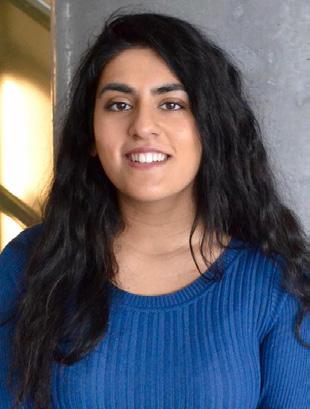
I thought my MTS in religion, ethics and politics would help me understand those linkages, and it was the certificate that acted as the anchor, that was pivotal in concretely making that connection. The MTS broadened my understanding, and CRPL deeply rooted me and helped me understand and situate religious literacy in the context of international relations. It was the pillar from which I understood that linkage.
KEVIN KEYSTONE (ORGANIZING AND ACTIVISM) : I want to dovetail on what Prabhroop said about the CRPL rooting us. CRPL was the anchor for my degree. The virtues of CRPL for me, came down to three things: religious literacy, plus an internship in my profession of choice, plus the opportunity to do a capstone. That for me was a perfect thread through my degree in religion, ethics, and politics. It meant that I got to examine questions of Zionism and Anti-Zionism, in particular in Palestine and Israel and in the North American Jewish context, through a religious literacy lens. I got to do an internship in community organizing. Now the capstone gives me the opportunity to tie everything together, to look back and say, ‘Okay. What have I learned? What work have I been doing here? And how can I wrap a bow around it and then apply it into the thing that I’m going to do next?’”
The Opportunity for Life-changing Interactions
CAMILLA: My CRPL project has become my career, and my project wouldn’t even exist if Mike Delaney, the RPL Humanitarian Fellow, hadn’t been such an incredible support the entire way through.
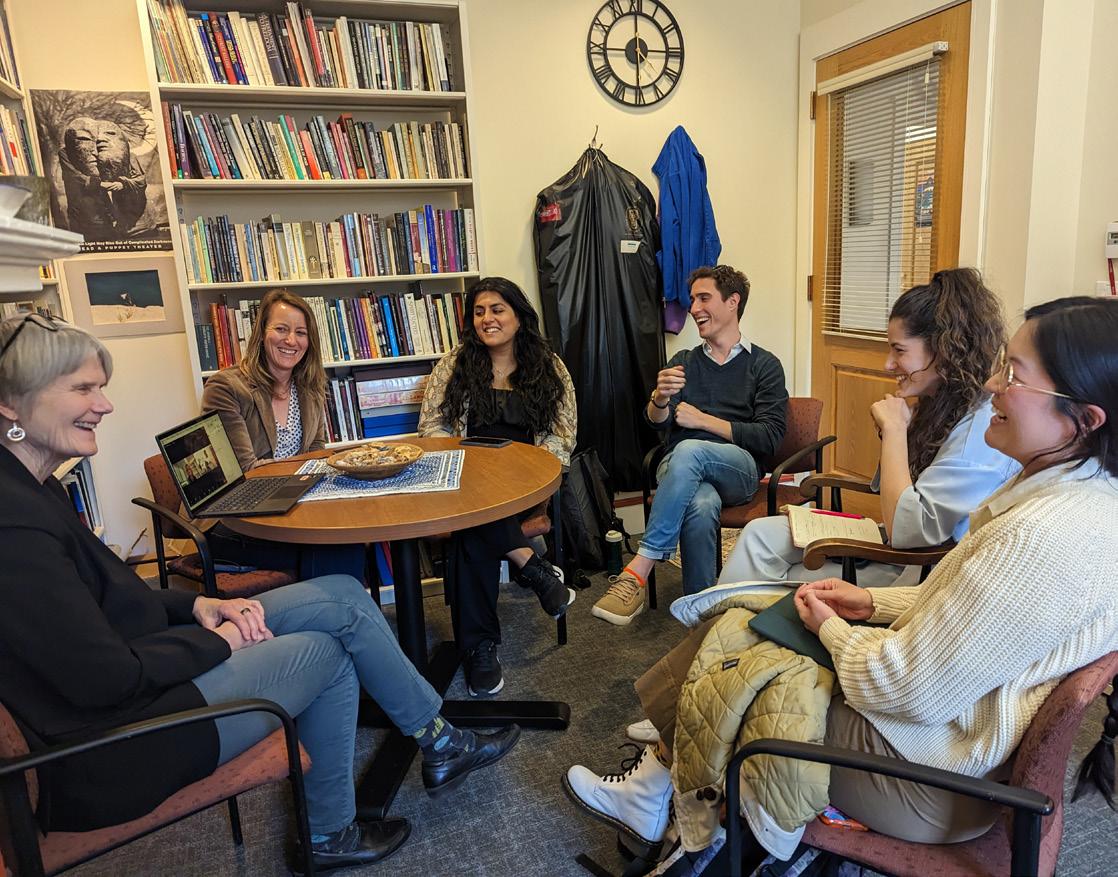
Mike connected me with humanitarian workers working in Cox’s Bazar for my very first report in the first semester of the CRPL course. He has also written all my cover letters for grants that I’ve applied for to go to Bangladesh.
After my CRPL internship, where I worked in the Islamic Law and jurisprudence team in Geneva with the International Committee for the Red Cross, I went to Bangladesh with Oxfam, another connection through Mike. I worked with the gender team to conduct research on their work with religious leaders in relation to women’s rights. That work was funded by a grant from the Harvard Kennedy School Women and Public Policy Program (WAPPP), which I applied for with the paper I wrote for the fall CRPL course.
I have continued to receive funding for my research, specifically looking at how NGOs can collaborate with Rohingya imams and muftis to address issues related to the provisioning of humanitarian aid and gender equity in the Rohingya camps in Bangladesh, from the Harvard Asia Center and the Lakshmi Mittal and Family South Asia Institute. The final humanitarian report I’m putting together, which combines all my field research and original interviews, serves as my capstone.
I truly don’t know where I would be if I didn’t do this certificate. To be honest, I feel like my career would be so fundamentally different. It’s actually impossible for me to fathom.
ARIELLA : Can I jump in on the CRPL-changed-my-life train?
When I started looking for an internship, I emailed the full list of HDS grads who had ever worked in filmmaking. When I talked to Unity Productions Foundation’s AwardWinning Director Alex Kronemer, an HDS grad and one of the contacts that Susie supplied, my initial ask was simply, “Can I please have an internship?” I was met with, “Yeah, maybe you can assist the production or something,” which then became, “Actually, here’s your talent contract. Would you like to host the show?”
What was just supposed to be my CRPL internship has now turned into my first TV-host job for a show I’m cowriting and co-creating. The show is a dream. It’s called Islam’s Greatest Love Stories, so it is dear to me. It’s centered around me and my experience as a student.
I didn’t know this was even possible. That was the important thing for me. CRPL gave me the ability to say, “What if I dream really big?” I remember saying, “You know what? I want to be the Anthony Bourdain of religion, and then it just fell on my lap.
Being in the CRPL course, building a vocabulary around the things that were important to me, and then seeing the example of the fellows really helped me. It wasn’t just the work that we were doing and the doors that they were opening for me, although Maytha would have opened many doors. It was just seeing someone doing it and thinking, “I can be doing that, too.” I’m Brazilian and Lebanese and seeing a woman who dresses similar to the way I do, who likes talking about the same things that I do, who is doing the kind of work I am doing, who didn’t choose between one or the other and works in these two worlds, gave me confidence.
I can trust the stories and the conversations we are having, which have completely catapulted my career in ways that I couldn’t imagine. I’m thankful for this program letting me dream.
Read the full conversation, “An Anchor and a Path: Student Reflections on the Certificate in Religion and Public Life,” at rpl.hds.harvard.edu/news.









